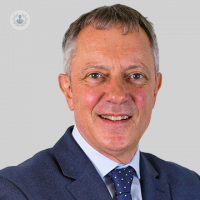Everything you need to know about assisted conception
Autore:Having a baby is not always simple, and some women will require assisted conception (fertility treatment) to be able to conceive. There are several options available and some require handling just the eggs, just the sperm, or both. Mr Michael Booker, a leading obstetrician and gynaecologist, explains what assisted conception is and what the different options available.

What is assisted conception?
Assisted conception is the term applied to a range of fertility treatments that involve handling eggs or sperm or both. In Britain, clinics that offer assisted conception are all regulated through The Human Fertilisation and Embryology Authority (HFEA). In the United States, a different term is used: assisted reproductive technologies and their regulatory body is called The Society for Assisted Reproductive Technologies (SART).
Over the years the commonest treatment is IVF treatment. The very first success with IVF was in Britain in 1978 and following on from that there's been a steady increase in the number of treatment cycles being carried out. A key year in the advance of IVF was 1986. This is when the introduction of trans-vaginal scanning and also new drug treatments for ovarian stimulation for IVF treatments became available. There was a further big step forward in 1992-93 with the introduction of intracytoplasmic sperm injection (ICSI). This is when sperm are injected directly into the eggs and this will apply to couples who previously would have had failed fertilisation.
Nowadays in Britain, about 1 in 50 babies born are born as the results of fertility treatment . Hence, it is no longer the rare and unusual thing that it was at one time. Now, many children aged 8, 9 and 10 will know someone else at school who's been born as a result of fertility treatment.
What different options are available?
The best-known assisted conception treatment is IVF, or to give it its full title, in vitro fertilisation, which involves stimulating the lady's ovaries, collecting eggs, fertilising eggs in the laboratory and then subsequently transferring an embryo or sometimes two embryos back to the uterus.
- If there is concern that the sperm might not be able to fertilise the eggs, the sperm can be injected into the eggs one by one and this technique is called intracytoplasmic sperm injection or ICSI.
- A much simpler treatment is intrauterine insemination treatment which can be done in either natural or stimulated cycles and there is also the option with this treatment to use donor sperm if it is a single lady or if the man does not have any sperm of his own.
- Going back to IVF treatment, some women go through IVF but their ovaries do not respond and then there are some women who have an early menopause and for those women there is the option for treatment with donor eggs. The woman will have the donor eggs fertilised with her partner's or husband's sperm and then the embryos are transferred back to her uterus. If there are surplus embryos to requirement for the fresh cycle (so if after having transferred one or two embryos there are good quality embryos remaining) these can be frozen and then transferred in subsequent frozen embryo replacement cycles.
- An additional option with IVF treatment is to biopsy the embryos. There are two techniques: pre-implantation genetic screening and pre-implantation genetic diagnosis, and this ensures that only normal embryos will be transferred back to the uterus.
- Some women will undergo IVF treatment but have their eggs frozen rather than having the eggs fertilised. This might be a woman who's about to start cancer treatment and wants to collect and store eggs before she starts on chemotherapy or radiotherapy.
- Finally, there are also women who want to freeze eggs for future use in case they might be infertile in future years.
If you are considering your options for assisted conception, make an appointment with an expert to get the best advice available.



